 Amazing cliff diving in cold winter
Amazing cliff diving in cold winter
 Enjoy Sochi 2014 in slow motion
Enjoy Sochi 2014 in slow motion
 University student sentenced to death for poisoning roommate
University student sentenced to death for poisoning roommate
 Chinese lunar New Year celebrated in San Francisco
Chinese lunar New Year celebrated in San Francisco
 Taiwan Lantern Festival 2014
Taiwan Lantern Festival 2014
 Haiyang Yangge: make up
Haiyang Yangge: make up
 China's top 10 richest cities
China's top 10 richest cities
 President Xi visits garrison troops in Inner Mongolia
President Xi visits garrison troops in Inner Mongolia
 Turnip sculptures amaze tourists in Qingdao
Turnip sculptures amaze tourists in Qingdao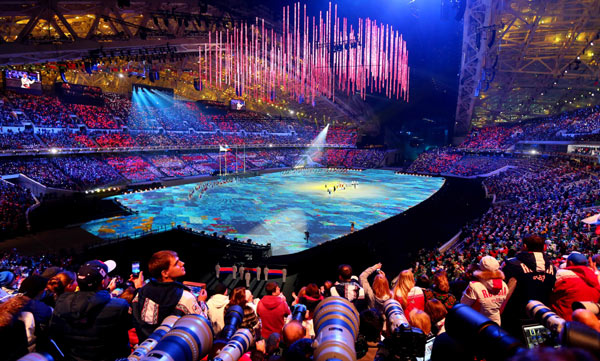 |
| The Sochi Winter Games closes on Sunday night.(Xinhua Photo) |
A record 88 countries and regions competed in the Sochi Games but only 26 made it to the medal table.
Except for the 1980 edition, the Winter Olympics has been dogged by drug ghosts since the doping test was introduced in 1968.
The Sochi Games ended with six positive cases.
Austrian cross-country skier Johannes Duerr was thrown out of the Games for testing positive for blood booster EPO on Sunday.
Swedish ice hockey forward Nicklas Backstrom, Latvian hockey player Vitalijs Pavlovs, Ukrainian cross-country skier Marina Lisogor, German biathlete Evi Sachenbacher-Stehle and Italian bobsledder William Frullani were the other offenders.
The IOC has carried out 2,631 doping tests, including 1,420 non-competition tests - more than the planned 2,453 and more
than ever before at the Games.
"What is important is that we see the system works," IOC president Bach said, adding it "shows the IOC is serious with zero tolerance."
Olympic competition wasn't free of controversy.
Russian Adelina Sotnikova stunned favorite Kim Yu-Na to take the women's figure skating gold in a controversial final, angering South Korea Skating Union which asked for a probe into the judging.
Canada and Slovenia protested against the aerodynamically beneficial outfits worn by the French who swept the ski cross podium, and took the case to the Court of Arbitration for Sport (CAS), which dismissed the appeals on Sunday.
Next Winter Olympics will be held in Pyeongchang, South Korea.

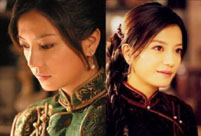 Most gorgeous female celebs in Chi-pao
Most gorgeous female celebs in Chi-pao Second round of test kicks off at Beijing Film Academy
Second round of test kicks off at Beijing Film Academy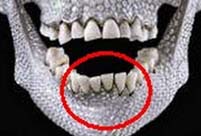 Ancient Qiang people had vertically grown teeth
Ancient Qiang people had vertically grown teeth Top 10 Chinese youth’s favorite seaside destinations
Top 10 Chinese youth’s favorite seaside destinations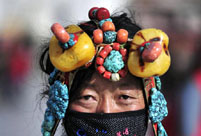 Traditional Tibetan clothing tailors
Traditional Tibetan clothing tailors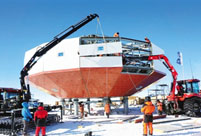 In photos: Unveiling Taishan station
In photos: Unveiling Taishan station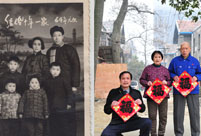 Beautiful moments of family reunion
Beautiful moments of family reunion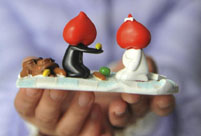 10 Valentine's Day ideas for couples
10 Valentine's Day ideas for couples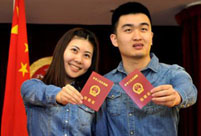 Let's get married today!
Let's get married today! Chinese warplanes C919 to appear at Singapore Airshow 2014
Chinese warplanes C919 to appear at Singapore Airshow 2014 Ruins of Shang Dynasty's structure unearthed in Shaanxi
Ruins of Shang Dynasty's structure unearthed in Shaanxi  Intercity high speed train in operation
Intercity high speed train in operation Severe coldness freezes large parts of China
Severe coldness freezes large parts of China  Beautiful moments of Sochi
Beautiful moments of Sochi  It's not just performing this year
It's not just performing this yearDay|Week|Month